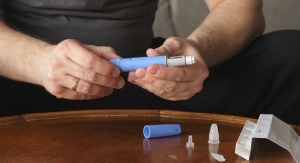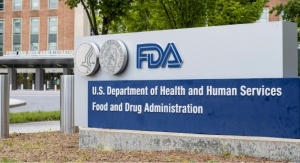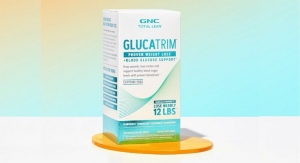Todd Harrison, Venable09.01.14
With the 20th anniversary of the passage of the Dietary Supplement Health and Education Act (DSHEA), there remains a significant amount of angst within the industry regarding its direction and whether the current regulatory structure serves the best interest of the industry and the general public.
Certainly, DSHEA was necessary in 1993 to ensure the availability of dietary supplements. However, the Internet was still in its infancy and no one could have foreseen the explosion of information and products that it would fuel. Access to so much information allows consumers to research products and ingredients to determine their own action plan for not only maintaining overall health and well-being but also for reducing their risk of becoming ill or to treat minor conditions such as a cold-related cough or minor aches and pains related to arthritis. The flip side of having all this information at your fingertips is that we now have products that purport to treat whatever ails you.
Unfortunately, the present regulatory structure could not have foreseen the impact that a nearly non-existent barrier of entry would mean to the industry or to the consumer. For the industry, it has fueled the perception by those in the mass media, politicians and regulators that we are a rogue industry that needs to be watched because we cannot be trusted. For the consumer, it has meant confusing or misleading structure/function claims, as well as being bombarded with fraudulent products promising miracle cures for arthritis, dementia and unlimited weight loss. It has also spawned a cottage industry of plaintiff attorneys, who believe the natural products industry is an easy target for their manufactured lawsuits; unfortunately, these attorneys understand that the rogue Internet player amounts to no more than a game of hide and seek, so instead they pursue legitimate companies.
Recently, we have seen this scenario played out on the national stage. While the Senate hearing featuring Dr. Oz received a significant amount of attention, the distrust of the regulator was played out behind the scenes with the I-Health/Martek consent decree. This consent decree is a travesty and should be rescinded, as neither company did anything wrong and its study and findings are legitimate.
Easy Market Access
Let’s first address an issue that the industry understands but ignores: the ease with which someone can bring any product to the marketplace. In this regard, the Senate hearing had some legitimacy, however, the senators were more interested in scoring points and making Dr. Oz and the industry look bad; it either failed to understand or appreciate the issue, which is the easy access to stock products. Certain ingredients referenced in the hearing actually have good clinical studies to support the basic weight loss claim. However, the hearing failed to recognize that many of those ingredients are branded and the products being sold are cheap knock offs offered by contract manufacturers to rogue fly-by-night Internet marketers that are often only one or two people looking to get rich quick. These are not real Internet companies that sell legitimate products in the digital marketplace. Let me offer an example.
I can wake up tomorrow and decide I want to market a dietary supplement for weight loss. Within 30 minutes (probably quicker), I can find a contract manufacturer (one that carries third-party certifications and belongs to all the right trade associations) that will offer me its generic stock weight loss product for a reasonable cost. I can probably get delivery within 30 days of ordering the product. The product will generally not contain a branded ingredient nor will the ingredient be substantially equivalent. To the extent the ingredient(s) are substantially equivalent, the product is generally full of unsubstantiated levels of the ingredients. I call this “pixie dusting.”
Yet, the contract manufacturer is representing to me as a potential customer that this product is a weight loss product. Now, if I am a novice, I would simply get my e-commerce site that is loaded with questionable claims of efficacy and marketing practices up and running. It really is that simple. However, industry either seems unwilling or at a loss for how to address this practice. Besides changing DSHEA to require mandatory product listing (I am against mandatory, but do not have an issue with voluntary), there is a self-regulatory approach that will help address this situation.
More particularly, there are numerous organizations and/or entities that promote third-party certification processes. However, none of these certifiers appear to address whether a contract manufacturer’s stock formula (that is sold to any private-label distributor willing to buy it) has adequate substantiation for the formula. Yet, the contract manufacturer is using these certifications to prove it’s bona fide to the potential customer. These certifiers should add substantiation of stock products to the certification process and require adequate substantiation for a stock formula to receive/retain certification.
Will this approach eliminate the practice? Of course not, but it is a start. This is only one potential solution to the issue and I am sure there are many others. However, if the problem is not addressed, then the answer may be to require all companies manufacturing and marketing products to list their products with FDA, and it be a violation for a contract manufacturer to produce a product for a private-label distributor that has not been listed with FDA within 30 days of first marketing its product.
I have one word of caution to those contract manufacturers that regularly sell to questionable companies: FTC may decide to forego the rogue Internet marketer and attempt to hold you responsible for being part of the supply chain. Thus, contract manufacturers should conduct their own due diligence on potential customers and not sell to companies with highly questionable business tactics.
Clinical Substantiation
Now, let’s discuss another serious issue within the industry: the value of clinical trials. I am a big proponent of conducting clinical trials on ingredients and finished products. I believe it is absolutely necessary to bring legitimacy to the industry. However, FTC’s consent decree with I-Health and Martek has sent a chill down my back and should send one down yours. The belief by FTC that Martek’s study was not sufficient to support I-Health’s marketing claim leaves me dumbfounded and is a classic situation of the government substituting its expert opinion for that of the company’s. Oddly, outside of the Organic and Natural Health Association (ONHA), a new industry trade group that includes consumer members, the industry was relatively quiet on this consent decree even though its potential chilling effect is significant. In filing comments, ONHA urged the commissioners to reconsider placing I-Health/Martek under order because of its potential effect on future studies. (Out of full disclosure, Venable drafted the comments for ONHA and I am serving as the initial president of the new association.)
More specifically, ONHA stated: “if the Commission pursues an enforcement action against the Companies based upon questioning the analysis in the published MIDAS Study, it will establish a regulatory paradigm that will adversely affect consumers because advertisers will refrain from providing truthful and nonmisleading information about their products for fear of government prosecution. While the Commission has authority to prohibit false and misleading advertising, if it were to continue to construe the substantiation standard to punish the Companies for making these claims and prohibit further communications to consumers, it would trample the First Amendment by suppressing claims in advertisements that are backed by a randomized, peer-reviewed and published clinical study.”
Moreover, ONHA noted that the proposed consent decree would “likely have the perverse effect of disincentivizing advertisers from spending the time, money, and resources required to develop clinical studies to support their claims.” In short, is there any clinical study that the FTC would find substantiates a product claim? I have my doubts, but I also believe that upgrading DSHEA can help address this issue.
More specifically, I have long been an advocate of permitting disease claims for dietary supplement products that are consistent with FDA’s OTC Drug Monograph system. I have further urged that such claims should be permitted if a clinical study is conducted on the targeted product and submitted to FDA. In fact, we could create a regulatory framework that would permit companies and FDA to work with each other to develop studies that are well-conducted.
In this regard, I would urge Congress to change the law to permit clinical studies on dietary supplements for disease conditions outside of the investigational new drug process. I would further modify the law to permit a company to submit a protocol to FDA for its review and comments on the design of the study. Congress could include a user fee for the protocol review process. The user fee could be set to be no more than $2,500 and have a sliding scale based on the size of the company. Finally, once the protocol is finalized and the study is conducted, the company should be permitted to make claims based on the study outcomes. Those marketing claims would not be subject to attack by FTC because it disagrees the study was appropriately conducted since FDA already approved the study.
This process is similar to one in Canada and would encourage the performance of clinical studies. Yes, the details need to be filled in and would be the subject of negotiations, but ultimately, having a meaningful regulatory structure regarding clinical studies and claims based thereon serves the industry well and will have the added benefit of limiting plaintiff class-action lawsuits.
The purpose is not to require clinical studies for all products, but only for those companies desiring to make a disease claim for their product or looking for a safe harbor for their structure/function claim. I also believe we need a natural products monograph system for products that make cough/cold type claims because it is an utter waste of agency resources to send a warning letter over whether a cough/cold claim is an impermissible disease claim.
Todd Harrison is partner with Venable, which is located in Washington, D.C. He advises food and drug companies on a variety of FDA and FTC matters, with an emphasis on dietary supplement, functional food, biotech, legislative, adulteration, labeling and advertising issues. He can be reached at 575 7th St. NW, Washington, D.C. 20004, Tel: 202-344-4724; E-mail: taharrison@venable.com.
Certainly, DSHEA was necessary in 1993 to ensure the availability of dietary supplements. However, the Internet was still in its infancy and no one could have foreseen the explosion of information and products that it would fuel. Access to so much information allows consumers to research products and ingredients to determine their own action plan for not only maintaining overall health and well-being but also for reducing their risk of becoming ill or to treat minor conditions such as a cold-related cough or minor aches and pains related to arthritis. The flip side of having all this information at your fingertips is that we now have products that purport to treat whatever ails you.
Unfortunately, the present regulatory structure could not have foreseen the impact that a nearly non-existent barrier of entry would mean to the industry or to the consumer. For the industry, it has fueled the perception by those in the mass media, politicians and regulators that we are a rogue industry that needs to be watched because we cannot be trusted. For the consumer, it has meant confusing or misleading structure/function claims, as well as being bombarded with fraudulent products promising miracle cures for arthritis, dementia and unlimited weight loss. It has also spawned a cottage industry of plaintiff attorneys, who believe the natural products industry is an easy target for their manufactured lawsuits; unfortunately, these attorneys understand that the rogue Internet player amounts to no more than a game of hide and seek, so instead they pursue legitimate companies.
Recently, we have seen this scenario played out on the national stage. While the Senate hearing featuring Dr. Oz received a significant amount of attention, the distrust of the regulator was played out behind the scenes with the I-Health/Martek consent decree. This consent decree is a travesty and should be rescinded, as neither company did anything wrong and its study and findings are legitimate.
Easy Market Access
Let’s first address an issue that the industry understands but ignores: the ease with which someone can bring any product to the marketplace. In this regard, the Senate hearing had some legitimacy, however, the senators were more interested in scoring points and making Dr. Oz and the industry look bad; it either failed to understand or appreciate the issue, which is the easy access to stock products. Certain ingredients referenced in the hearing actually have good clinical studies to support the basic weight loss claim. However, the hearing failed to recognize that many of those ingredients are branded and the products being sold are cheap knock offs offered by contract manufacturers to rogue fly-by-night Internet marketers that are often only one or two people looking to get rich quick. These are not real Internet companies that sell legitimate products in the digital marketplace. Let me offer an example.
I can wake up tomorrow and decide I want to market a dietary supplement for weight loss. Within 30 minutes (probably quicker), I can find a contract manufacturer (one that carries third-party certifications and belongs to all the right trade associations) that will offer me its generic stock weight loss product for a reasonable cost. I can probably get delivery within 30 days of ordering the product. The product will generally not contain a branded ingredient nor will the ingredient be substantially equivalent. To the extent the ingredient(s) are substantially equivalent, the product is generally full of unsubstantiated levels of the ingredients. I call this “pixie dusting.”
Yet, the contract manufacturer is representing to me as a potential customer that this product is a weight loss product. Now, if I am a novice, I would simply get my e-commerce site that is loaded with questionable claims of efficacy and marketing practices up and running. It really is that simple. However, industry either seems unwilling or at a loss for how to address this practice. Besides changing DSHEA to require mandatory product listing (I am against mandatory, but do not have an issue with voluntary), there is a self-regulatory approach that will help address this situation.
More particularly, there are numerous organizations and/or entities that promote third-party certification processes. However, none of these certifiers appear to address whether a contract manufacturer’s stock formula (that is sold to any private-label distributor willing to buy it) has adequate substantiation for the formula. Yet, the contract manufacturer is using these certifications to prove it’s bona fide to the potential customer. These certifiers should add substantiation of stock products to the certification process and require adequate substantiation for a stock formula to receive/retain certification.
Will this approach eliminate the practice? Of course not, but it is a start. This is only one potential solution to the issue and I am sure there are many others. However, if the problem is not addressed, then the answer may be to require all companies manufacturing and marketing products to list their products with FDA, and it be a violation for a contract manufacturer to produce a product for a private-label distributor that has not been listed with FDA within 30 days of first marketing its product.
I have one word of caution to those contract manufacturers that regularly sell to questionable companies: FTC may decide to forego the rogue Internet marketer and attempt to hold you responsible for being part of the supply chain. Thus, contract manufacturers should conduct their own due diligence on potential customers and not sell to companies with highly questionable business tactics.
Clinical Substantiation
Now, let’s discuss another serious issue within the industry: the value of clinical trials. I am a big proponent of conducting clinical trials on ingredients and finished products. I believe it is absolutely necessary to bring legitimacy to the industry. However, FTC’s consent decree with I-Health and Martek has sent a chill down my back and should send one down yours. The belief by FTC that Martek’s study was not sufficient to support I-Health’s marketing claim leaves me dumbfounded and is a classic situation of the government substituting its expert opinion for that of the company’s. Oddly, outside of the Organic and Natural Health Association (ONHA), a new industry trade group that includes consumer members, the industry was relatively quiet on this consent decree even though its potential chilling effect is significant. In filing comments, ONHA urged the commissioners to reconsider placing I-Health/Martek under order because of its potential effect on future studies. (Out of full disclosure, Venable drafted the comments for ONHA and I am serving as the initial president of the new association.)
More specifically, ONHA stated: “if the Commission pursues an enforcement action against the Companies based upon questioning the analysis in the published MIDAS Study, it will establish a regulatory paradigm that will adversely affect consumers because advertisers will refrain from providing truthful and nonmisleading information about their products for fear of government prosecution. While the Commission has authority to prohibit false and misleading advertising, if it were to continue to construe the substantiation standard to punish the Companies for making these claims and prohibit further communications to consumers, it would trample the First Amendment by suppressing claims in advertisements that are backed by a randomized, peer-reviewed and published clinical study.”
Moreover, ONHA noted that the proposed consent decree would “likely have the perverse effect of disincentivizing advertisers from spending the time, money, and resources required to develop clinical studies to support their claims.” In short, is there any clinical study that the FTC would find substantiates a product claim? I have my doubts, but I also believe that upgrading DSHEA can help address this issue.
More specifically, I have long been an advocate of permitting disease claims for dietary supplement products that are consistent with FDA’s OTC Drug Monograph system. I have further urged that such claims should be permitted if a clinical study is conducted on the targeted product and submitted to FDA. In fact, we could create a regulatory framework that would permit companies and FDA to work with each other to develop studies that are well-conducted.
In this regard, I would urge Congress to change the law to permit clinical studies on dietary supplements for disease conditions outside of the investigational new drug process. I would further modify the law to permit a company to submit a protocol to FDA for its review and comments on the design of the study. Congress could include a user fee for the protocol review process. The user fee could be set to be no more than $2,500 and have a sliding scale based on the size of the company. Finally, once the protocol is finalized and the study is conducted, the company should be permitted to make claims based on the study outcomes. Those marketing claims would not be subject to attack by FTC because it disagrees the study was appropriately conducted since FDA already approved the study.
This process is similar to one in Canada and would encourage the performance of clinical studies. Yes, the details need to be filled in and would be the subject of negotiations, but ultimately, having a meaningful regulatory structure regarding clinical studies and claims based thereon serves the industry well and will have the added benefit of limiting plaintiff class-action lawsuits.
The purpose is not to require clinical studies for all products, but only for those companies desiring to make a disease claim for their product or looking for a safe harbor for their structure/function claim. I also believe we need a natural products monograph system for products that make cough/cold type claims because it is an utter waste of agency resources to send a warning letter over whether a cough/cold claim is an impermissible disease claim.
Todd Harrison is partner with Venable, which is located in Washington, D.C. He advises food and drug companies on a variety of FDA and FTC matters, with an emphasis on dietary supplement, functional food, biotech, legislative, adulteration, labeling and advertising issues. He can be reached at 575 7th St. NW, Washington, D.C. 20004, Tel: 202-344-4724; E-mail: taharrison@venable.com.




























